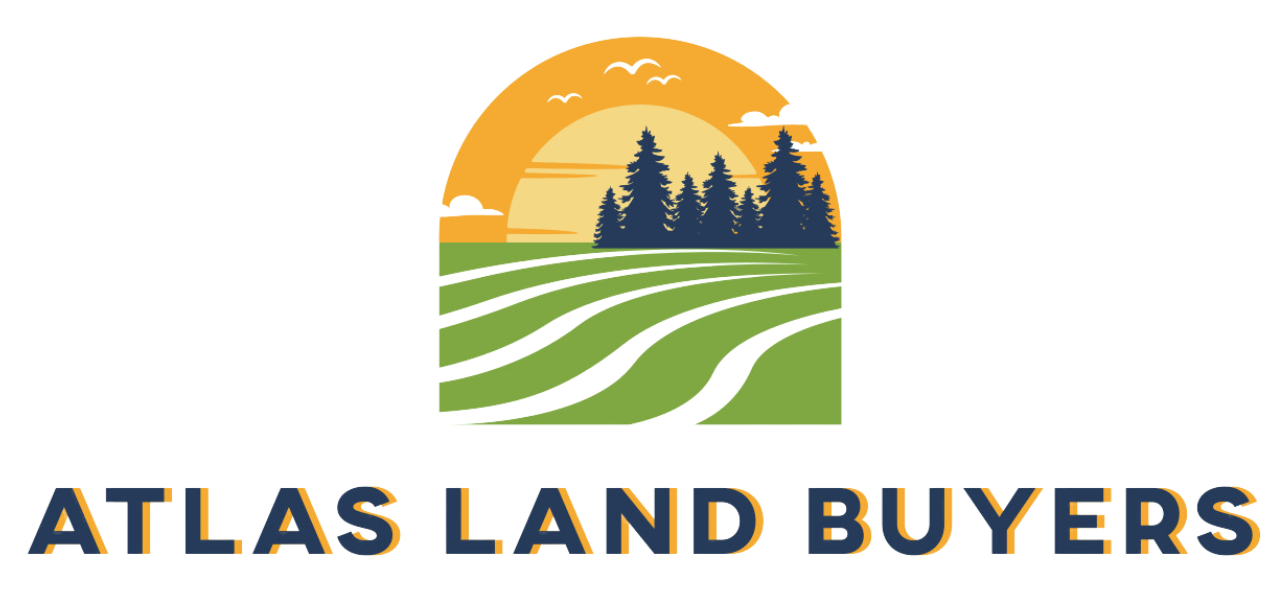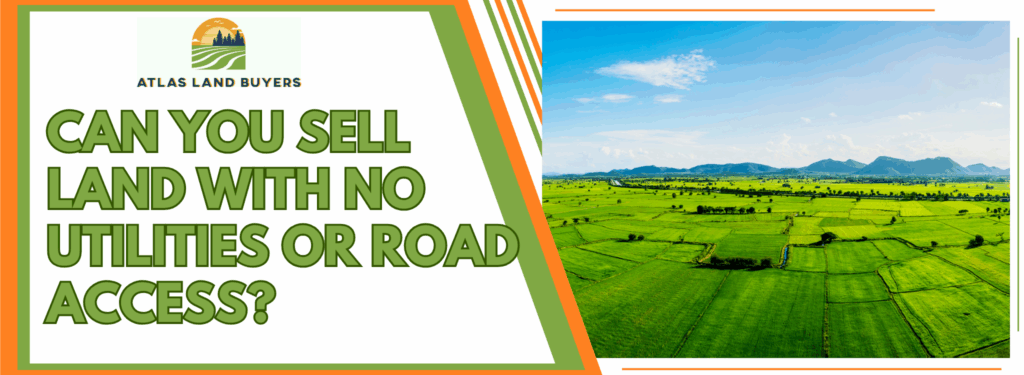
Understanding the Challenges of Selling Land Without Utilities
It can be hard to sell land that doesn’t have services or a road to it, so you need to be smart about how you do it. First, the land isn’t immediately usable because it doesn’t have utilities like water, electricity, or sewage. This makes it less appealing to buyers who are usually looking for ready-to-build sites.
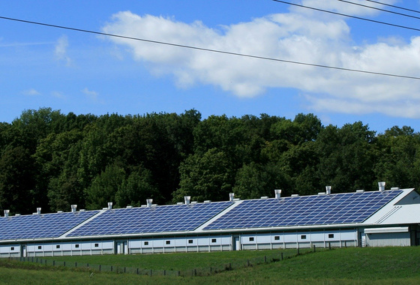
Lack of road access can also turn people off because it makes it harder to move building materials and people who will live there in the future. Because of these things, it might be harder to get standard buyers who care about infrastructure and ease of use.
So, sellers should focus on showing off the land’s promise by talking about things like its natural beauty, its good location, or the chance to live off the grid. In these situations, buyers need to know about zoning laws in Texas, so they can know what kinds of developments are allowed.
Also, pricing strategies need to be thought through carefully. Even though the land has some problems, having a competitive price can make it more appealing. Getting in touch with niche groups of people who are interested in using these properties for recreation or helping to protect the environment could also help you sell them more effectively.
Road Access and Its Impact on Land Value
When selling land that doesn’t have services or a road to it, it’s important to know how the road affects the value of the land. Access to a road has a big effect on how marketable and valuable a property is thought to be.
Buyers often care most about how easy it is to get to and how convenient the property is, so properties with established roads are more desired. If a piece of land doesn’t have easy access to a road, it might not be as appealing because it could be harder to get to and build on.
But smart marketing can draw attention to unique features like privacy or natural beauty to bring in buyers who want to live off the grid or use the property for leisure. Bringing up the possibility of future infrastructure development can also get buyers interested who are looking for long-term gains.
Concerns about accessibility can be eased by giving thorough information about nearby public roads or easements. Working with local authorities may also reveal possible improvements that could raise the value of the property over time.
Strategies for Marketing Raw Land to Potential Buyers
You need to use good marketing to get people interested in buying raw land that doesn’t have any services or way to get to it. Tell them what makes the land unique, like how beautiful it is naturally or how close it is to places they want to be, like parks or bodies of water.
Use high-quality photos and drone footage to make your online ads more appealing. This will help these features stand out in real life. To reach people who are interested in investing in land or living off the grid, use real estate websites and social media sites that focus on unused land.
You might want to work with local real estate professionals who specialize in homes in country areas. They understand the market well and can help you find people who want to buy. For example, if there is a chance to add services or build access roads, that is something to stress.
By offering good financing options or owner financing, you can attract more buyers who want flexible payment options to the property.
Evaluating the Legal Implications of Selling Unimproved Land
As a seller of undeveloped land that doesn’t have services or a road to it, you need to know the law in order to make a good deal. People who want to sell their home should learn about all the land-use and zoning laws that might affect it.
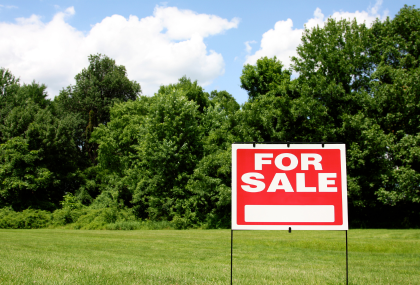
Local laws must be studied to find out what types of buildings are allowed on the land and if there are any restrictions that could affect how it is used in the future. You should also look at any easements or rights-of-way that could make it harder to get to the land. These can have a big impact on the price.
You should talk to a real estate lawyer before buying land. They can help you understand any legal issues or duties that come with it and assure you follow all the laws. When people sell their homes, they should also be honest about any issues that might arise due to the lack of infrastructure. People will believe sellers more if they are honest, and sellers will avoid future disputes or claims of misrepresentation.
When buying undeveloped land on the real estate market, it can be hard to get through the process without knowing about these legal problems.
How to Price Land with Limited Infrastructure
When setting the price of land without much infrastructure, like electricity or a road, you should use a method that works for the land. First, do a full market study to find out how much similar homes in the area are worth. Pay special attention to lands with the same issues.
What natural qualities might make it more appealing? How close is it to already built-up areas? Is there room for growth in the future? Because of these things, the price should be changed to account for the extra money a buyer would need to spend on changing the infrastructure.
For added value, show any zoning licenses or limits that are already in place. These will show what the land can be used for. Get help from local real estate buyers who have sold undeveloped or remote land before. They can help you set the right price for your property so that it attracts buyers who are looking for business or off-grid options.
Exploring Alternative Uses for Remote or Isolated Properties
If you want to sell land that doesn’t have services or a road to it, you might get more interested buyers if you can think of other ways to use it. Some people who want to live off the grid look for places that are far away or have no other people living there. Because of this, they are great for green projects like solar farms, wind farms, or farming that doesn’t harm the environment.
These homes are a one-of-a-kind chance for people who want to live off the grid and not depend on normal infrastructure. This kind of land can also be sold to groups that care about wildlife or the environment and want to protect natural areas or make their own nature parks.
Investors might also think about selling the land for recreational purposes, like as a shooting lodge or a campground. These uses don’t need much work but let people enjoy nature a lot. Getting the word out about these choices not only grows the market, but it also appeals to small groups that care about the environment and privacy.
This is how sellers can turn flaws that buyers see into traits that buyers like, which will appeal to a wide range of buyers who value peace and sustainability.
The Role of Zoning Laws in Selling Undeveloped Land
Zoning rules are very important when selling undeveloped land, especially if it doesn’t have utilities or a road to it. Knowing the rules about zoning in the area can help people who are interested in buying land imagine what they could do with it in the future, like building homes, farming, or protecting it.
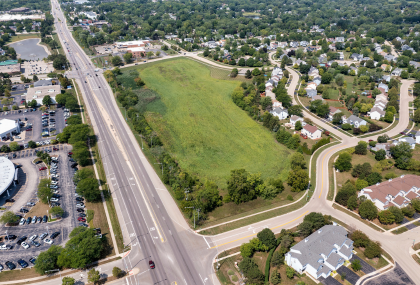
Before selling, sellers should learn as much as they can about zoning classifications to find out what uses are allowed on the land and then tell potential buyers about these uses. Drawing attention to possible rezoning opportunities can also make the property more appealing.
Getting involved with local planning boards and zoning officers can help you learn about any upcoming changes to the rules that could affect the value or use of the land. By showing how flexible zoning can open up new possibilities, sellers can get more interested buyers and improve their chances of a successful deal.
Knowing zoning laws can also help you set realistic goals for development timelines and investment needs. This makes the sale process clearer and more appealing to well-informed buyers.
Financing Options for Buyers of Off-grid Properties
Offering different ways to pay for land that doesn’t have services or a road to it can help attract people interested in buying off-grid homes. There are two types of mortgages: traditional and owner financing. In owner financing, the seller acts as the investor and lets the buyer make payments over time.
Traditional lenders don’t always want to finance unique homes like these, so this method can be great for people who want to live off the grid. That or you could work with land loan companies that know about off-grid real estate and offer loans that are made just for these kinds of deals.
More people knowing about creative ways to pay, like lease-to-own deals or land contracts, can also help you reach more buyers who might not have all the money they need right away. By offering different financing options, buyers can successfully target people who want to live sustainably and without normal infrastructure.
Crafting an Effective Listing for Raw and Unconnected Land
To get people with big ideas to buy undeveloped land that doesn’t have services or road access, it’s important to make a good listing that shows off the land’s special potential. First, look around and enjoy the beauty of the land. Use specific, vivid language to describe the plants, hills, streams, clearings, and any other interesting features of the environment.
Like, you could talk about eco-friendly ways to spend or grow your business or about people who want to live without electricity. These are trends that niche markets are liking more and more. Telling buyers exactly what the land can be used for and following zoning rules will help them imagine what they could do with it in the future.
You need to add some good shots. Show the whole land and its surroundings with maps and drone footage. To be honest, you should talk about any problems that might arise because of a lack of services or roads and offer creative or low-cost solutions.
If you write interesting stories in your ad, people will want to live in the woods and make their dreams come true.
Negotiating Sales Contracts for Rural and Inaccessible Lands
When you agree to sell land that is far away or hard to get to, you need to think about what will happen if something goes wrong because the land doesn’t have services or a road that leads to it. When negotiating, it’s important to see things from the buyer’s point of view. This is especially true if the buyer is an investor or builder who wants to make money in the long run.
Privacy, the chance that the value of the land will go up, or the fact that better utilities will soon be built on it can all make it seem more valuable. It can also help to talk about things like nature, nice views, and being close to new places.
If the prices are cheaper and the terms of the deal are open, more people will want to buy. You could offer seller credit or come up with creative ways for people to pay. When getting permission to build roads or services, think about what could go wrong ahead of time. This will make things clear and help people trust each other.
For buyers to know everything they need to know, it’s best to learn as much as possible about zoning laws and entry rights. That process can go faster if you hire real estate buyers with a lot of experience who know about homes in rural places. They know the market and can help you get the deal through their connections. For those seeking a faster sale process, working with investor land buyers in Dallas, TX, and nearby cities can be a strategic option, as they often purchase land as-is, regardless of zoning issues or use restrictions. They can also provide cash offers that allow for quicker transactions, reducing the uncertainty of land purchase processes. Learn how our process works, and learn why homeowners trust us.
Leveraging Online Platforms to Reach Niche Buyers for Your Land
People who are looking for unique real estate opportunities are the best people to sell land that doesn’t have services or a road to it on the Internet. Using specific websites and social media can help sellers show off the possibilities of their land to people who want to invest in undeveloped or off-grid land.
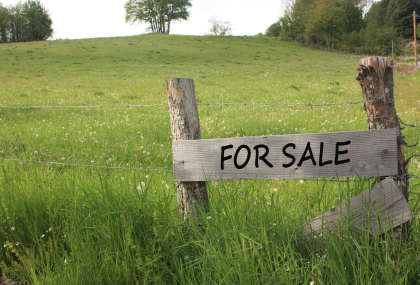
People who like to take risks and want privacy or eco-friendly ways to live may be interested in high-quality pictures and detailed descriptions that show off natural features, possible uses, and future growth potential. Sites like LandWatch, Zillow, and Facebook Marketplace let sellers reach a large but targeted audience. To do this, they need to use keywords that focus on the property’s promise rather than its flaws.
You can also join online groups for real estate investing or alternative lifestyles to find people who value privacy and are willing to invest in land that doesn’t have standard services. Also, joining websites and groups about dealing in land can help you make useful connections and get your property seen by more people looking for unique homes. Curious about how to sell land without real estate agent? Read about our complete guide to selling land online without a real estate agent.
Can You Buy Land with No Access?
Some people want to buy land that doesn’t have any services or a road to it. They often wonder if it’s doable and how much they could make. If you want to make smart decisions, you should know how to get land without direct access.
First, you should study to find out if there are any legal rights-of-way or easements that could be used to make it easier to get in soon. Talking to a real estate buyer can help you with any tricky title problems with landlocked homes.
Knowing the zoning rules and land use restrictions in your area can also help you build or make things better in the future. Also, buyers should devise creative ways to work out entry deals with owners of nearby properties. This could make the land useful and worth a lot more.
It can be hard to buy this kind of property, but these smart moves can help you make money on pieces of land that seem impossible to reach. By collaborating with a cash home buyer in Austin and other cities in Texas who specializes in rural or hunting properties, you can increase your exposure by leveraging their network and expertise.
Can You Sell Land with Restrictions?
Of course! There are good things you can do to improve your chances of making a deal when you’re trying to sell land that has restrictions, like properties that don’t have services or road access. To start, when you’re marketing the place, it’s important to stress its unique potential.
Talk about how beautiful it is, how private it is, or anything else that might attract people who want to live off the grid or invest. Giving possible buyers a lot of information about the land’s zoning rules and how it could be developed in the future can also reassure them of its possibilities, even though there are limits in place at the moment.
Working with a real estate buyer who has sold land with these kinds of limits can also be very helpful. They can help you find niche areas and connect you with people who are interested. Lastly, you might want to set a fair price for the property that considers the fact that it doesn’t have any services or road access yet, while still getting what it’s really worth.
Even if there are many rules, you can still sell land if you carefully follow these steps.
Helpful Texas Blog Articles
- Expert Tips For Selling Hunting Land In Texas
- Discover Texas Land Zoning Details
- Closing Costs For Land Purchases In The Texas Real Estate Market
- Can You Sell Land Without a Title Company in Texas
- How to Determine the Value of Your Land in Texas
- Selling Inherited Land In Texas
- Selling Land With Mineral Rights In Texas
- Strategies For Selling Land At Auction In Texas
- Do I Need a Lawyer to Sell Land in Texas?
- Can I Sell Land to the City or County in Texas?
- How to Avoid Scams When Selling Land
- How to Market Land for Sale Online
- How to Sell Land to Out-of-State Buyers
- How to Avoid Capital Gains Tax When Selling Land
- How to Sell Commercial Land Near a Highway or Commercial Zone

| APPURTENANT EASEMENTS | PRESCRIPTIVE EASEMENT | EASEMENT IN GROSS | EASEMENTS IN GROSS | ROAD MAINTENANCE | PUBLIC RIGHT OF WAY |
| RIGHTS OF WAY | RIGHT OF WAY | TAX | TAXES | DEED | SUBDIVISION |
| ZONING ORDINANCES | LANDLOCKED PARCEL | DRAINAGE | PROPERTY TAXES | HIGHWAYS | DRIVEWAY |
| UNITED STATES | DATA | BEACHFRONT | BEACH | FENCE | FEE |
| ACRES | TITLE SEARCH | SEWER | REFINANCE | TIMBER | LIABILITY |
| LAKE | INVESTMENTS | FLOODING | COURT |
